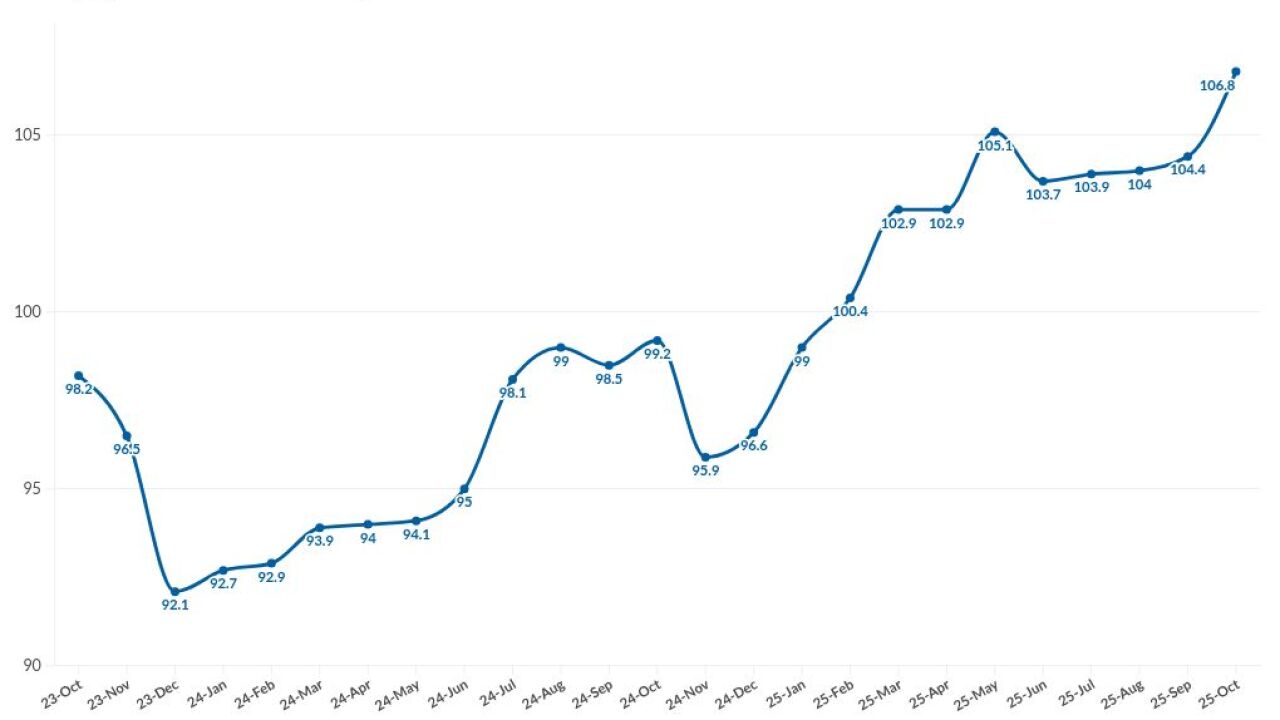A jump in lending in many parts of Europe, coupled with stronger economic growth and higher employment, should help bolster the performance of securitizations in Europe, according to Fitch Ratings.
But deals still face downside risks, particularly interest rates, which are now low, or even negative, but are bound to start rising at some point. Also the jobless rate is quite high in some countries despite progress. The jobless rate in Spain, for instance, remains stubbornly high at 21.6%.
The short-term outlook though is bright.
As Fitch points out, lending to the private sector in seven economies taken as a whole—Germany, France, Netherlands, Spain, Italy, Ireland and Portugal—rose 20% in the third quarter from a year earlier, on a weighted average basis. The figure encompasses housing, non-financial corporates and consumption. Home buying was especially strong in the European periphery.
Still, overall outstanding debt remains well below pre-crisis levels in most economies, and even with the bump in growth, deleveraging is continuing in Spain, Portugal and Ireland, where the outstanding private debt load has been dropping an annualized 4% this year.
Lenders are competing more aggressively for borrowers and this is helping buoy the stable performance of European structured finance transactions in both the consumer and corporate sectors.
Borrowers have more refinancing alternatives with rates hovering at extraordinarily low levels—in many cases even going negative, a product of the European Central Bank's aggressive quantitative easing program. The ECB has been buying €60 billon worth of bonds each month. This has helped push interest rates across all sectors of the economy to levels never before seen.
The rising rate of prepayments that this environment has spurred has been helping asset classes with granular portfolios—from auto loans to mortgages. And they’ll keep doing so next year, the analysts said.
But not all investors in securitizations necessarily benefit with higher prepayments of the underlying loans. If the ones with the highest interest rates get paid down, then the excess spread in a deal drops, potentially hurting investors holding the most subordinated tranches.
While many believe the ECB will
No one sees that happening in the short-term. ECB President Mario Draghi has committed to QE through September 2016. But Fitch warns that even a small rise could have a disproportionate impact on borrowers who’ve grown cozy with the negligible interest rates of the last few years.





